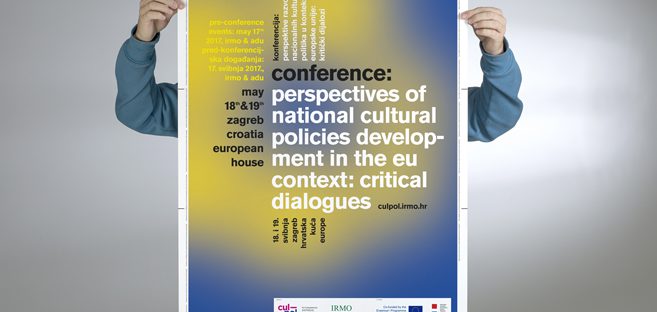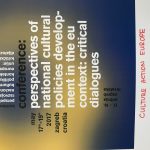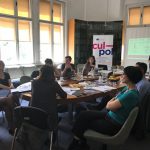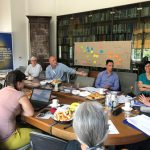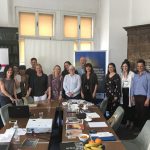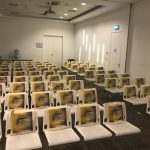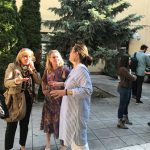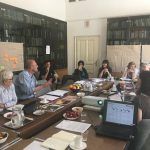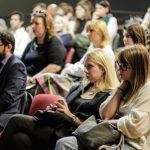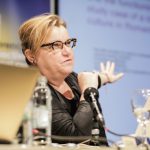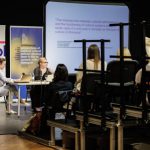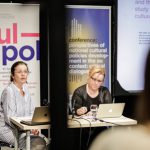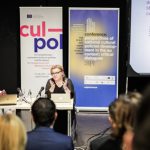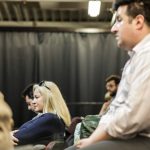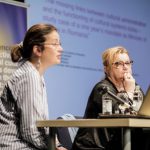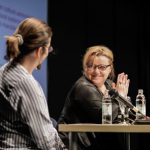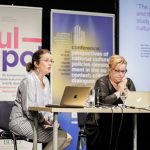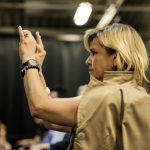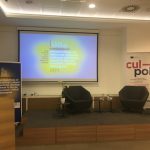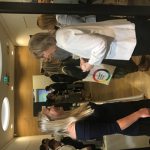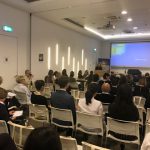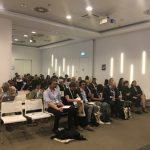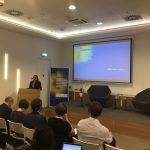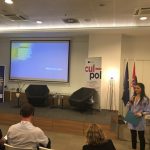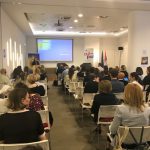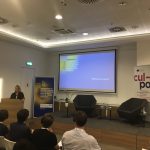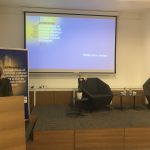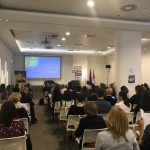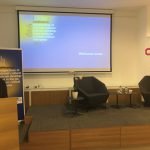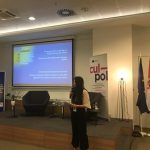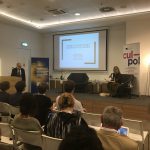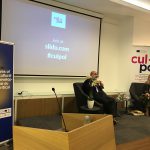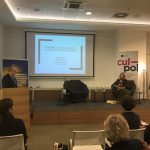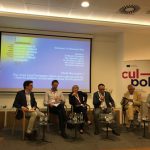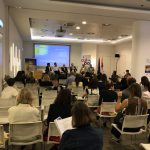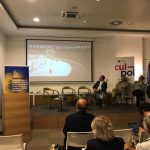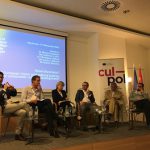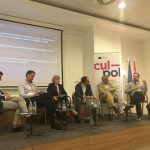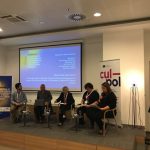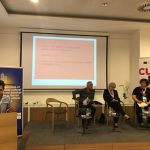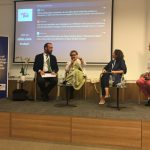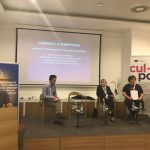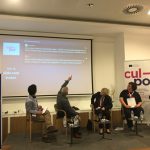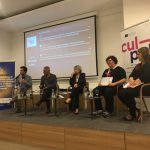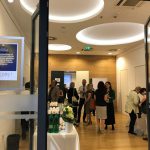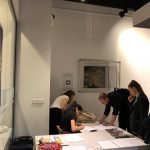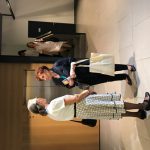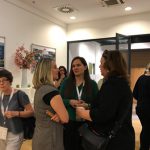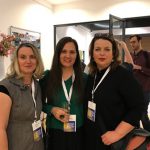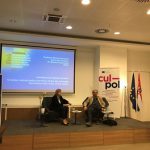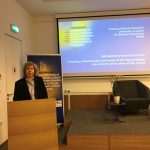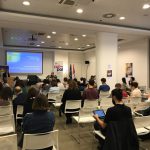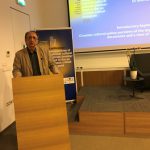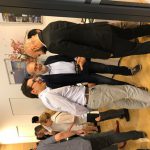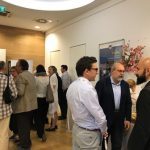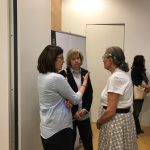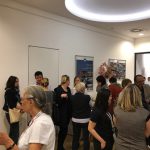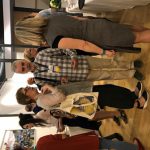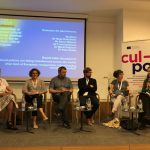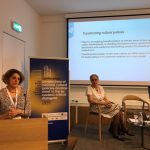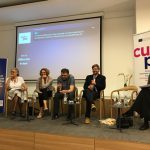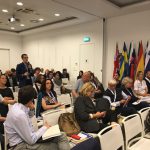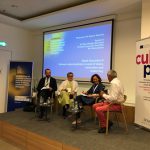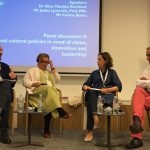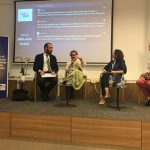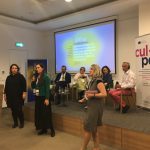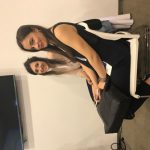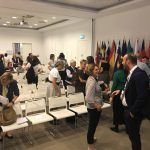The international conference ‘Perspectives of national cultural policies development in the EU context: critical dialogues’ organized by the Institute for Development and International Relations (IRMO) was held in Zagreb on May 17-19, 2017. The conference gathered cultural policy researchers, cultural professionals, cultural civil society representatives, policy-makers, students and young cultural professionals from Europe and Croatia.
As an introduction to the main conference programme (18-19 May), on the 17th of May 2017, two pre-conference activities took place, organised in cooperation with IRMO partners. The workshop ‘CAE Croatian Hub – Reflection exercise on the future of Europe’, was co-organized with the network Culture Action Europe within the framework of the project ‘EUROPE OF CULTURE: co-creating a cultural scenario’. Furthermore, in cooperation with the Academy of Dramatic Art, IRMO organized a pre-conference lecture by Ms Corina Şuteu, cultural consultant, president of FilmETC and former Minister of Culture of Romania.
The conference focused on the following themes:
- Cultural policies and the crisis in/of European Union – how to achieve sustainable cultural development?
- Strategies and tendencies of local cultural development in Europe: the role and impact of European Capital of Culture project
- What kind of European comparative cultural policy research is needed today?
- National cultural policies in need of vision, innovation and leadership.
‘’Culture is not simply a large and important sector of the economy, it is a ‘social software’ that is badly needed to manage the complexity of contemporary regional societies and economies in all of its manifold implications” said Professor Pier Luigi Sacco, from the IULM University in Milan during his keynote lecture ‘Making cultural policy matter in the EU agenda: key topics and perspectives’. The interesting lecture on the change that culture is undergoing, in the context of convergence, from Culture 1.0 to Culture 3.0 kick started the main conference programme, set the tone of the next two days and sparked interest for a lively discussion. In the course of the conference the main speakers and participants reflected on how to make cultural policy matter on national or EU agendas, on the future of Europe and the place and role of culture in it, on prospects of achieving sustainable cultural development, etc.
By bringing into dialogue past experiences with present and future challenges the conference discussions tried to put in focus relevant questions that cultural policy must address in order to ensure emancipatory and sustainable culture. The international conference “Perspectives of national cultural policies development in the EU context: critical dialogues” was attended by 110 participants – cultural policy researchers, cultural professionals, cultural civil society representatives and policy-makers in the field of culture from Croatia and 16 European countries. This diversity of participants contributed to the widening range of the discourses and contributed to the breadth of discussions raised by the conference. The conference showed the key aspects of the changing cultural and media landscape today and how new approaches in cultural development and, thus, cultural policy, need to be made, which would take into account the emerging concepts such as Culture 3.0, alghoritmic culture, participatory cultural governance and cultural power. The discussions and contributions of the participants who represented most domains of the cultural sphere – from artists and practitioners, to researchers, executive managers and political decision-makers – demonstrated not only awareness, but also the ambition to (re)shape cultural policy in order for it to be able to respond to upcoming challenges.
Detailed CULPOL Conference Report (in English), List of participants and participants’ reflections (in English and Croatian) are now available on the CULPOL web site.
Other conference materials:
Programme-Culpol-conference-2017
CULPOL-Conference-Reader-2017-
For more information about the project follow the project CULPOL website or contact us via e-mail: culpol@irmo.hr.

